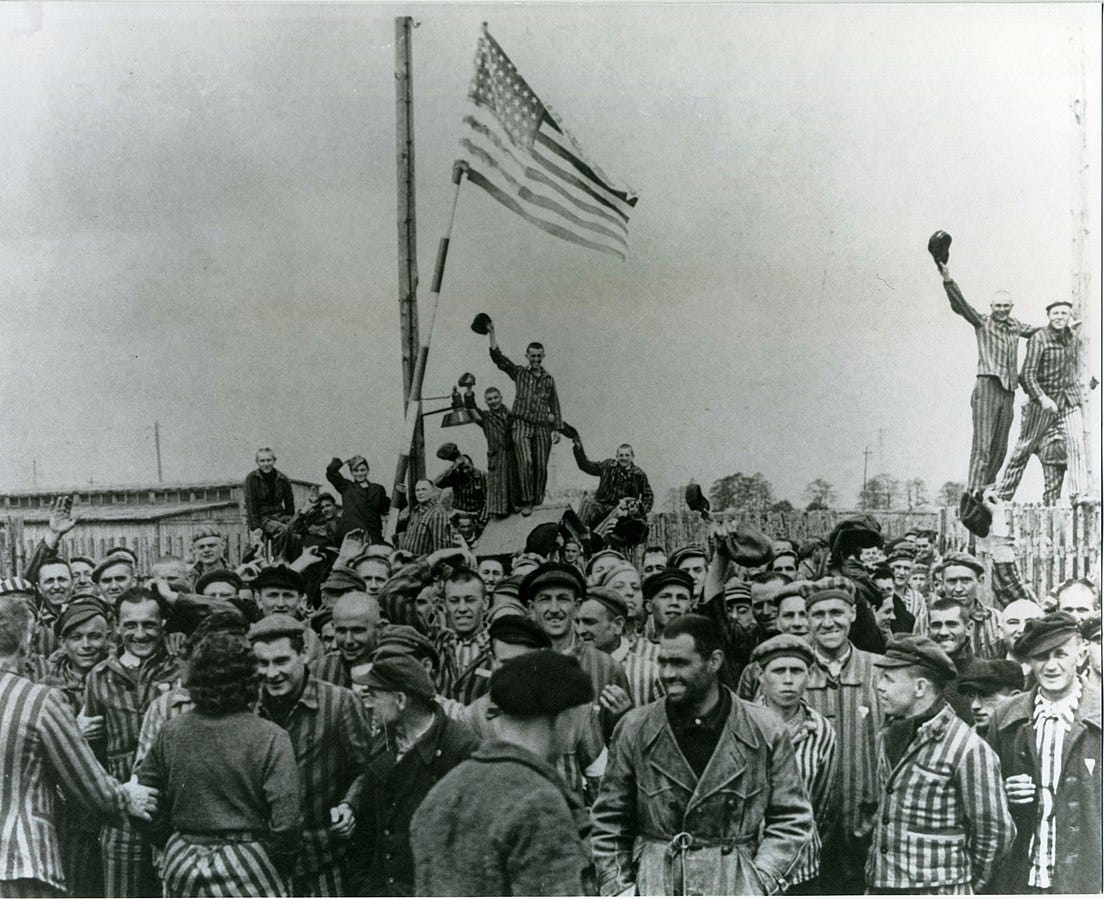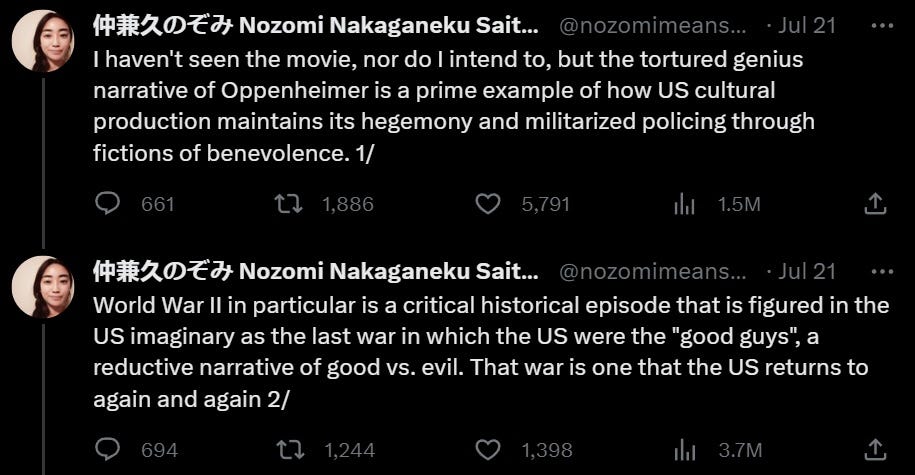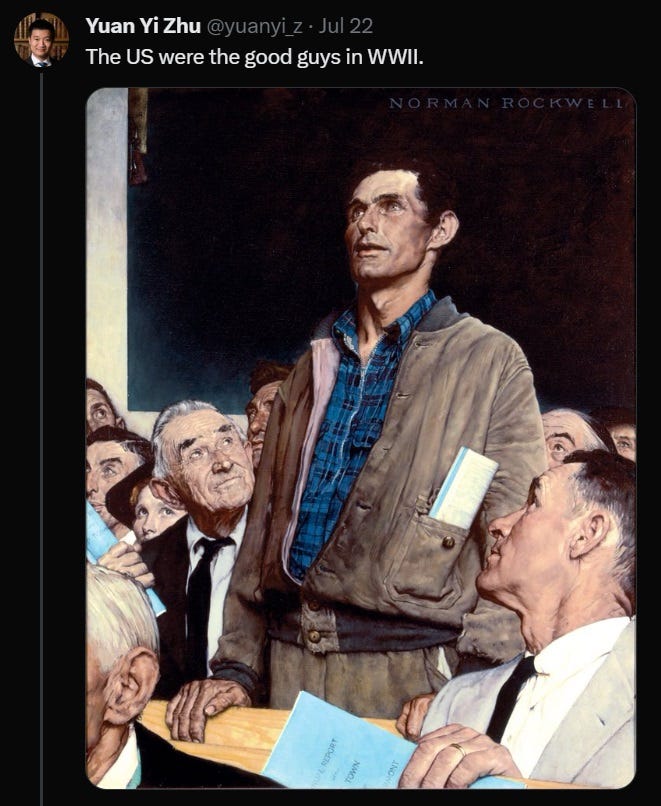Yes, the U.S. were the "good guys" in World War 2
But we need to understand what that means in real life.

On Twitter — or, I should say, the app now known as “X” — last weekend gave us a little throwback to the heyday of the woke 2010s. The release of the movie Oppenheimer provoked a series of viral tweets condemning the movie from a progressive standpoint. Most criticized Oppenheimer for focusing on its White protagonist while failing to show the Japanese people killed by his invention. One reminded us of the mostly Hispanic farmers in New Mexico who were displaced by the Los Alamos facility, some of whom were later hired back to work in often dangerous conditions. All of the tweets garnered widespread support from some quarters and faced strong condemnation from others, and the website spent much of the weekend debating them.
But along with the progressive tweets calling for the centering of marginalized POC voices, there were some leftist tweets using the movie as an occasion to question the narrative that the U.S. were the “good guys” in World War 2. The most widely read was probably the thread by University of Pittsburgh literature grad student Nozomi Saito:
This provoked much well-deserved pushback. My favorite was this simple declaration by Oxford international relations professor Yuan Yi Zhu:
In my mind, it’s perfectly acceptable to leave it at what Zhu said. But as the U.S. finds itself on the verge of another great-power contest, I think it’s worthwhile to reexamine the moral dimensions of World War 2. As movies like Oppenheimer attest, Americans generally take a lot of pride in our role in that conflict, and I believe our pride is mostly justified. But blithe self-confidence in our moral superiority can be dangerous, and so I think it’s important to look past our national mythmaking at the nuanced picture of what it really means to be “the good guys” in a war that kills tens of millions of people.
The morality of WW2 is nuanced, but not ambiguous
“We are told that the American soldier does not know what he is fighting for. Now, at least, he will know what he is fighting against.” — Dwight D. Eisenhower, after inspecting Buchenwald




